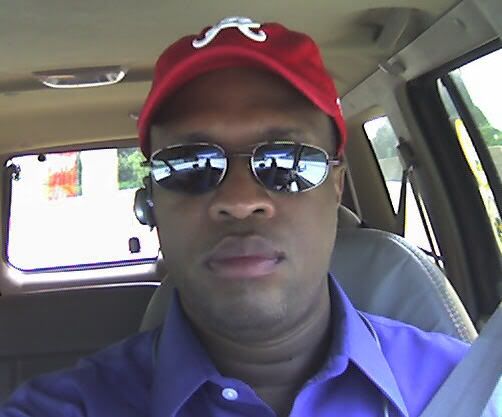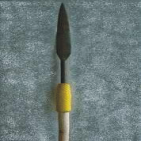
plez sez: To my way of thinking, the process of making decisions is as important as the decision itself. This has always been an endearing fact about Sen. Barack Obama, he is a thoughtful and deliberate and intelligent man. His openess to learning and curiosity belies that rampant ignorance that has characterized George W. Bush over the past 8 years... you get the feeling that Bush doesn't give a damn about facts.
In reading the New York Times, I ran across an interesting article about the thought process that went into Obama's decision to pick Sen. Joe Biden as his running mate. Although, it was a deeply personal decision, the decision came at the end of a carefully deliberate process.
One thing to note while reading the article, there is not one mention of Sen. Hillary Clinton. I read in another article that she asked Obama not to vet her if she was not going to be his selection for vice president. Now, we know why she wasn't vetted!
In Obama's Choice, A 'Very Personal Decision'
By Jeff Zeleny and Jim Rutenburg for NYTimes.com
By Jeff Zeleny and Jim Rutenburg for NYTimes.com
WASHINGTON — In the beginning, Senator Barack Obama was not entirely sold on Senator Joseph R. Biden Jr. And Mr. Biden told friends that he was pessimistic of his chances of becoming Mr. Obama’s Democratic running mate.
Over the course of two months, as the dynamics of the presidential campaign and world events shifted quickly, Mr. Biden’s stock rose through one of the most rigorous vice-presidential vetting processes that Democrats could recall. It was a process in which Mr. Obama applied intense secrecy, careful pragmatism and political input from a team of internal and external advisers that have guided his campaign from the start. And it ended Thursday with a phone call from Mr. Obama, who reached Mr. Biden as he was at a dentist’s office where he had taken his wife to have a root canal.
On Saturday, as the two men embraced before a crowd in Illinois, the new Democratic partnership made its debut. Yet in a moment that could have showcased Mr. Obama’s decision-making, his top advisers made a concerted effort not to disclose how he made his choice, instead choosing to showcase the life stories of the two men on the ticket and to present Mr. Biden as a forceful new critic of Senator John McCain, Republican of Arizona.
“It’s a very personal decision,” said David Axelrod, the campaign’s chief strategist, in a brief interview Saturday. “He approached it in a very serious, sober and reasoned way.”
Mr. Obama reached the decision about 10 days ago while on a weeklong vacation to Hawaii. That week, Mr. Biden’s strengths in foreign policy were highlighted by the conflict between Russia and Georgia, giving his prospects a further boost. Associates of the other main possibility on Mr. Obama’s list, Senator Evan Bayh of Indiana, said Mr. Obama cited the situation in Georgia in breaking the news to Mr. Bayh late last week that he had chosen Mr. Biden.
But people involved in the process said it was not just foreign policy that tilted the balance. They said Mr. Obama’s decision had as much to do with Mr. Biden’s appeal among white working-class voters and compelling personal story, and his conclusion that the Delaware senator was “a worker.”
The plans for the announcement began to take shape in early July. Until the end, aides said, a small team inside the Chicago headquarters planned for four possibilities: Mr. Biden, Mr. Bayh, Gov. Tim Kaine of Virginia and Gov. Kathleen Sebelius of Kansas. Speeches were written, media plans were made and private planes were at the ready to take any of the four to Springfield, Ill.
Mr. Biden was hardly considered a likely pick at the start of the process. His reputation for verbosity was Washington legend. While he impressed at the debates by defying expectations with his brevity, his presidential campaign foundered and ended quickly.
“I think in his heart of hearts he thought in the end he wouldn’t get it,” said Gov. Edward G. Rendell of Pennsylvania, a friend. “During the vetting process you mostly hear why you wouldn’t be a good candidate,” he added, naming “the change issue” and “some of the things he said during the campaign.”
But Mr. Biden had some powerful patrons in his corner whose opinions Mr. Obama respected, like Mr. Rendell; Representative Rahm Emanuel of Illinois, the chairman of the House Democratic caucus; and Senator Edward M. Kennedy of Massachusetts — not only a respected Senate lion but also uncle to a senior member of Mr. Obama’s vetting team, Caroline Kennedy.
As the vetting team sorted through Mr. Biden’s financial statements, political statements and medical records, Mr. Obama’s top political aides — Mr. Axelrod chief among them — reached out to friends in Mr. Obama’s orbit to get a sense of what sort of politician Mr. Biden was. The results belied Mr. Biden’s reputation. Reports came back that he was not only potentially more energetic and disciplined than widely known, but also that he had a distinct appeal suited to the areas throughout the industrial Midwest where Mr. Obama had struggled in the primaries.
But Mr. Obama was seeking a running mate with whom he would be comfortable governing for four or eight years, a bit of advice Senator John Kerry of Massachusetts had given him.
“I get the sense that he was quite serious about thinking through about the nature of who his partner will be there and, I think, the role of the vice president as a future partner in government,” said David Wilhelm, a former chairman of the Democratic National Committee, who worked on Mr. Biden’s 1988 presidential campaign and is close to Mr. Obama.
“I think it’s easy to give that sort of thing short shrift,” he added, “so ‘what kind of partner I’m getting’ mattered quite a bit.”
Much of the process unfolded in silence as dozens of lawyers completed their tedious assignments for the vice-presidential vetting team. They conducted lengthy sit-down interviews with at least six Democratic prospects, and they demanded thousands of pages of documents, including copies of speeches delivered more than two decades ago.
In addition to the four ultimate finalists, Democratic officials said, Gov. Bill Richardson of New Mexico and Senator Christopher J. Dodd of Connecticut were also among those who received extensive consideration. Teams of lawyers, at least 10 for some candidates, were assembled to inspect finances, medical histories and political backgrounds of the prospective candidates and their families.
In an interview Saturday, Mr. Richardson said that Mr. Obama called him soon after he claimed the nomination on June 3 to tell him that he wanted to put him on his list of prospects. But, Mr. Richardson said, Mr. Obama warned him that it would be an intensive process, and asked him to consider whether he was up for it. (After checking with his wife, Mr. Richardson said, he called back to say he was.)
Mr. Obama called to check in with him midway through the process, Mr. Richardson said, before his vacation to Hawaii. As always, Mr. Obama dialed Mr. Richardson himself from his cellphone. Mr. Richardson said he told Mr. Obama that he had not seen his name on lists in the news media, and Mr. Obama responded by saying, “No, you’re in this thing.”
Mr. Richardson was alerted weeks later that his vetting process had gone well, he said, but late last week — he would not say exactly when — Mr. Obama called to thank him and tell him, “I’ve made up my mind, and we’re going in another direction.”
In the waning days, several people close to Mr. Bayh said he remained upbeat over the possibility that he would be Mr. Obama’s choice. He had met with Mr. Obama several times, and the amount of information Mr. Obama’s staff had asked for was beyond anything Mr. Bayh — who has been in contention for the vice-presidential position at least twice before — had experienced.
Mr. Biden, meanwhile, was viewed as undercutting himself with his own behavior as reporters staked out his Delaware residence. When Mr. Biden returned home in his white pickup truck from a garbage dump and made an off-color joke to camera crews last week, an e-mail message circulated among Mr. Bayh’s closest associates that read, “Keep talking Joe, please keep talking.”
He did not.
Over the course of two months, as the dynamics of the presidential campaign and world events shifted quickly, Mr. Biden’s stock rose through one of the most rigorous vice-presidential vetting processes that Democrats could recall. It was a process in which Mr. Obama applied intense secrecy, careful pragmatism and political input from a team of internal and external advisers that have guided his campaign from the start. And it ended Thursday with a phone call from Mr. Obama, who reached Mr. Biden as he was at a dentist’s office where he had taken his wife to have a root canal.
On Saturday, as the two men embraced before a crowd in Illinois, the new Democratic partnership made its debut. Yet in a moment that could have showcased Mr. Obama’s decision-making, his top advisers made a concerted effort not to disclose how he made his choice, instead choosing to showcase the life stories of the two men on the ticket and to present Mr. Biden as a forceful new critic of Senator John McCain, Republican of Arizona.
“It’s a very personal decision,” said David Axelrod, the campaign’s chief strategist, in a brief interview Saturday. “He approached it in a very serious, sober and reasoned way.”
Mr. Obama reached the decision about 10 days ago while on a weeklong vacation to Hawaii. That week, Mr. Biden’s strengths in foreign policy were highlighted by the conflict between Russia and Georgia, giving his prospects a further boost. Associates of the other main possibility on Mr. Obama’s list, Senator Evan Bayh of Indiana, said Mr. Obama cited the situation in Georgia in breaking the news to Mr. Bayh late last week that he had chosen Mr. Biden.
But people involved in the process said it was not just foreign policy that tilted the balance. They said Mr. Obama’s decision had as much to do with Mr. Biden’s appeal among white working-class voters and compelling personal story, and his conclusion that the Delaware senator was “a worker.”
The plans for the announcement began to take shape in early July. Until the end, aides said, a small team inside the Chicago headquarters planned for four possibilities: Mr. Biden, Mr. Bayh, Gov. Tim Kaine of Virginia and Gov. Kathleen Sebelius of Kansas. Speeches were written, media plans were made and private planes were at the ready to take any of the four to Springfield, Ill.
Mr. Biden was hardly considered a likely pick at the start of the process. His reputation for verbosity was Washington legend. While he impressed at the debates by defying expectations with his brevity, his presidential campaign foundered and ended quickly.
“I think in his heart of hearts he thought in the end he wouldn’t get it,” said Gov. Edward G. Rendell of Pennsylvania, a friend. “During the vetting process you mostly hear why you wouldn’t be a good candidate,” he added, naming “the change issue” and “some of the things he said during the campaign.”
But Mr. Biden had some powerful patrons in his corner whose opinions Mr. Obama respected, like Mr. Rendell; Representative Rahm Emanuel of Illinois, the chairman of the House Democratic caucus; and Senator Edward M. Kennedy of Massachusetts — not only a respected Senate lion but also uncle to a senior member of Mr. Obama’s vetting team, Caroline Kennedy.
As the vetting team sorted through Mr. Biden’s financial statements, political statements and medical records, Mr. Obama’s top political aides — Mr. Axelrod chief among them — reached out to friends in Mr. Obama’s orbit to get a sense of what sort of politician Mr. Biden was. The results belied Mr. Biden’s reputation. Reports came back that he was not only potentially more energetic and disciplined than widely known, but also that he had a distinct appeal suited to the areas throughout the industrial Midwest where Mr. Obama had struggled in the primaries.
But Mr. Obama was seeking a running mate with whom he would be comfortable governing for four or eight years, a bit of advice Senator John Kerry of Massachusetts had given him.
“I get the sense that he was quite serious about thinking through about the nature of who his partner will be there and, I think, the role of the vice president as a future partner in government,” said David Wilhelm, a former chairman of the Democratic National Committee, who worked on Mr. Biden’s 1988 presidential campaign and is close to Mr. Obama.
“I think it’s easy to give that sort of thing short shrift,” he added, “so ‘what kind of partner I’m getting’ mattered quite a bit.”
Much of the process unfolded in silence as dozens of lawyers completed their tedious assignments for the vice-presidential vetting team. They conducted lengthy sit-down interviews with at least six Democratic prospects, and they demanded thousands of pages of documents, including copies of speeches delivered more than two decades ago.
In addition to the four ultimate finalists, Democratic officials said, Gov. Bill Richardson of New Mexico and Senator Christopher J. Dodd of Connecticut were also among those who received extensive consideration. Teams of lawyers, at least 10 for some candidates, were assembled to inspect finances, medical histories and political backgrounds of the prospective candidates and their families.
In an interview Saturday, Mr. Richardson said that Mr. Obama called him soon after he claimed the nomination on June 3 to tell him that he wanted to put him on his list of prospects. But, Mr. Richardson said, Mr. Obama warned him that it would be an intensive process, and asked him to consider whether he was up for it. (After checking with his wife, Mr. Richardson said, he called back to say he was.)
Mr. Obama called to check in with him midway through the process, Mr. Richardson said, before his vacation to Hawaii. As always, Mr. Obama dialed Mr. Richardson himself from his cellphone. Mr. Richardson said he told Mr. Obama that he had not seen his name on lists in the news media, and Mr. Obama responded by saying, “No, you’re in this thing.”
Mr. Richardson was alerted weeks later that his vetting process had gone well, he said, but late last week — he would not say exactly when — Mr. Obama called to thank him and tell him, “I’ve made up my mind, and we’re going in another direction.”
In the waning days, several people close to Mr. Bayh said he remained upbeat over the possibility that he would be Mr. Obama’s choice. He had met with Mr. Obama several times, and the amount of information Mr. Obama’s staff had asked for was beyond anything Mr. Bayh — who has been in contention for the vice-presidential position at least twice before — had experienced.
Mr. Biden, meanwhile, was viewed as undercutting himself with his own behavior as reporters staked out his Delaware residence. When Mr. Biden returned home in his white pickup truck from a garbage dump and made an off-color joke to camera crews last week, an e-mail message circulated among Mr. Bayh’s closest associates that read, “Keep talking Joe, please keep talking.”
He did not.
Read the New York Times article the deconstructs Obama's selection of Joe Biden here.
Read the CNN.com article Obama's selection of Joe Biden here.













1 comment:
This has been a great help to me. I wondered what the back story was behind Biden.
I figured that Barack had done his job and made his decision based on sound reasoning.
I would like for you to visit my blogsite please. I have something for you there.
Post a Comment